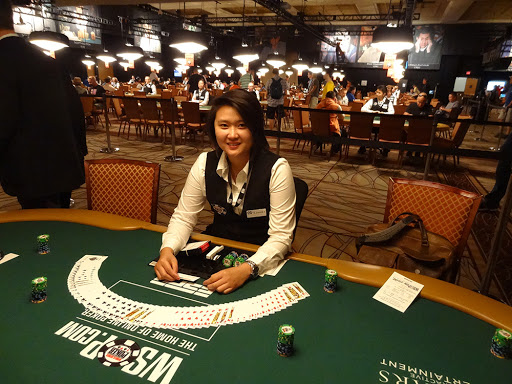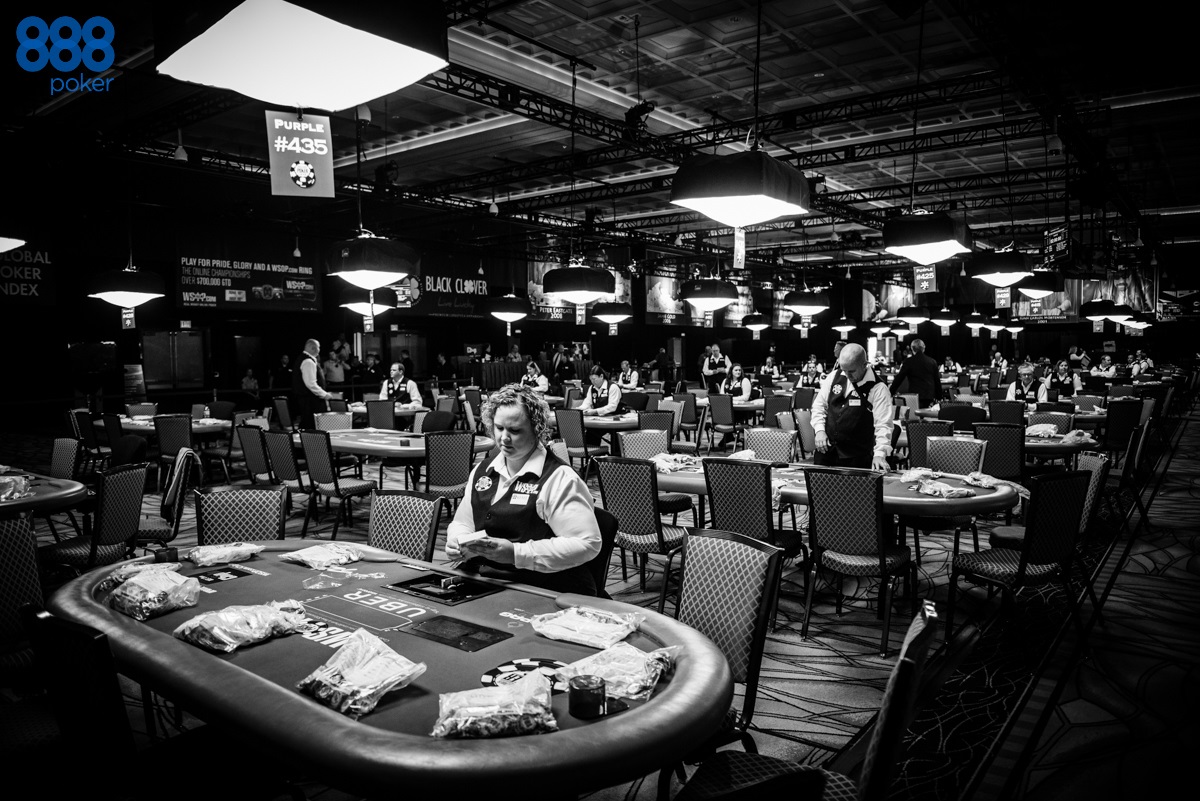Average Poker Dealer Tips
Why would you want to become a poker dealer?
I am a dealer.dealers usually work on tips only, i tip $1 or $2 everytime i win a pot in cash games.tournaments are a totally different story.if u cash in a tourny u should tip out 10% of ur winnings unless they take out tip along with rake when u buy in to the tourny at the begining. This is so b/c dealers make near nothing on. Tips were pooled, except for the poker dealers who kept their own tips. Typically, my hourly would be anywhere from $15 an hour to the holiday week when it was $24 an hour. I worked there full time and they took out taxes. Tips were a line on our paystubs. Of course, poker dealers make a lot more than this. A good dealer can earn between $30k and $60k a year. This extra income comes via tips. A very experienced poker dealer can make $100k+. To get to this level, you’ll need to be dealing the biggest games and working at peak times. How Do Poker Dealers Make Tips: Per Pot: Most players will tip. Most dealers will look to deal around 30 hands per hour and earn an average of $1 per hand, meaning it's possible to earn $30 per hour in tips. This figure is based on the fact that the average.

There are a few reasons that poker players, in general, decide to become poker dealers. One of those reasons, the most obvious reason, is that dealing poker is very profitable – much more profitable than most people realise.
Think of it like this, it’s pretty much good practice to toss the dealer a buck every time you win a hand right? Not everyone does it, but most of us do, some toss more especially the travellers and other people that don’t play the game on a regular basis.
How much do poker dealers earn?
For right now, let’s go with that, an average of $1 per hand in tips. We won’t even take into consideration tourists and other big tipping games. Now we’ll consider another fact about dealing poker, the fact that poker dealers are expected to deal an average of 30 hands per hour minimum.
So, assuming an average of $1 tip per hand, 30 hands per hour means poker dealers are making about $30 an hour in tips plus very small paychecks they are taking from the casino.
In Oregon, for instance, at Chinook Winds Casino poker dealers are paid $8.80-$9.48 plus tips. Comparatively, Table Mountain Casino in California pays new dealers $8 plus tips. Dealers in Oregon must pass an audition at the casino as well as undergo an extensive background investigation, pass a drug test and receive a licence from the Gambling Commission.
There are lots of openings for tournament dealers; however, cash game dealer positions are actually pretty hard to come by.
How do I become a certified poker dealer?

The most common way to become a certified poker dealer is to take a class on dealing poker. The length of poker dealing classes varies from as little as two weeks to as many eight weeks. The price of the classes varies almost as much as the length required in them.
The ease of finding a class and being able to afford that class largely depends on where you’re located. For instance, in Oregon at Chinook Winds Casino, classes are offered free during the slower months in effort to gear up for busier summer events.
Classes at Chinook Winds Casino are usually a couple of weeks long with as much follow up as is required for a new dealer to pass an audition. Caesars in Las Vegas also offers free poker dealer classes when they’re gearing up for the World Series of Poker season. These classes are three weeks long, are followed up by auditions, background checks and licensing by the Nevada Gaming Commission.
The average price to learn any new casino game seems to range from these free classes, that aren’t offered regularly, on up to about $1500 with a guaranteed job placement after you’ve graduated at the larger more expensive schools. It’s been said that the best dealer schools teach new dealers how to deal multiple games including Chinese Poker.
If you are curious what sort of things you might learn at a professional Holdem Poker dealer school check out videos on YouTube for learning to deal casino poker.
Dealing these major tournament events offers these new dealers a venue in which they can hone their skills, become ready to pass stricter auditions working in places such as Atlantic City, Las Vegas or aboard poker cruise ships.
Obtaining your State Dealers Licence
Once you’ve gotten the necessary training, and a position at a casino, you’ll need to become licenced by the state where you’re to be employed. This process generally involves proving your citizenship via the same documents employee’s use to prove their right to work legally within the United States and passing a criminal background investigation.
The background investigation usually requires that the applicant submit to fingerprinting and submit a photograph of themselves with their application. Applications then need to be renewed every 3-5 years.
Breaking into the Industry
If you’re looking to become a licenced dealer, at an actual casino, you’ll need experience dealing professionally. It’s the same catch 22 the world has dealt with when looking for employment for decades, you have to have experience to get it.
The best way to break into the field without actual live game dealing experience is during large tournament events. When casinos hold monthly, quarterly or annual large events they tend to be very short-staffed so this is a great time for a trained, yet under experienced dealer, to pick up some extra dealing time and grab some experience to put on the their C.V.
The biggest tip you can take advantage of is to learn every game you can whenever you get the chance. Whether it’s poker, or another casino game, the more games you can list on your job applications the more appealing you will be to the casinos you send your C.V. to.
Remember, as you hear about free classes like the one’s held occasionally at casinos like Caesars, that 100’s of dealers before you have paid a lot of money for these classes to get their position within the casino. You may have to pay for other classes in the future so, snap up these free opportunities whenever and wherever possible!
Introduction

It is not unusual to find a Three Card Poker dealer who inadvertently exposes one of his cards. This is due to height and location of the shuffler. It is natural for right handed dealers to grab the cards on the side, potentially exposing the bottom one to the players as he puts them down on the table. The best view is usually at first base, or the first position to act.
Average Poker Dealer Tips 2019
This advantage play has been known for years, and most dealers are trained to keep the dealer's cards low and parallel to the table, or to leave them in the shuffler until the dealer's turn. Still, I find dealers who flash often, especially in smaller casinos.
Average Poker Dealer Tips 1x2
This is not the first time I wrote about this: I covered it briefly in my book and my September 6, 2003 newsletter. However, I feel it is time to quit holding back and let everybody in on this.
Strategy
Here is the strategy if the player can clearly make out the rank of one of the dealer's cards, according to the card exposed.
- 2 to J: Raise always.
- Q: Raise with Q-9-2 or better.
- K: Raise with K-9-2 or better.
- A: Raise with A-9-2 or better.
If all you know is that the dealer has a face card, then you should raise on Q-J-5 or better. If all you know is the dealer doesn't have a face card, then you should always raise, whether or not you can rule out the card being an ace, which you often can.
Average Poker Dealer Tips For Beginners
Odds
Average Poker Dealer Tips For Real
The following table shows the probability of each net win on the Ante bet assuming the player can make out the rank of one dealer card. The pays are based on the common pay Ante Bonus pay table that pays 5 for a stright flush, 4 for a three of a kind, and 1 for a straight. The lower right cell shows a player advantage of 3.48%.
One Rank Exposed Return Table

| Win | Combinations | Probability | Return |
|---|---|---|---|
| 7 | 1,851,132 | 0.001515 | 0.010608 |
| 6 | 2,795,916 | 0.002289 | 0.013733 |
| 5 | 867,312 | 0.000710 | 0.003550 |
| 3 | 26,929,356 | 0.022046 | 0.066138 |
| 2 | 272,048,544 | 0.222715 | 0.445429 |
| 1 | 357,814,224 | 0.292928 | 0.292928 |
| 0 | 689,736 | 0.000565 | 0.000000 |
| -1 | 142,804,152 | 0.116908 | -0.116908 |
| -2 | 415,710,828 | 0.340325 | -0.680650 |
| Total | 1,221,511,200 | 1.000000 | 0.034829 |
If the player can categorize the dealer's card as an ace, 2-10, or face card, then the player advantage drops to 2.41%. My book incorrectly stated this was the advantage for the paint or not-paint situation. The player should not play at all if he can't distinguish an ace from a 2-10, because the house would have a 2.43% advantage. To any players who may have played paint or not-paint games because of my book, I deeply apologize for the error.
The next table shows the player advantage under the 5-4-1 and some other known Ante Bonus pay tables.
One Rank Exposed Return Table
| Player Hand | Pay Table 1 | Pay Table 2 | Pay Table 3 | Pay Table 4 |
|---|---|---|---|---|
| Straight flush | 5 | 4 | 3 | 5 |
| Three of a kind | 4 | 3 | 2 | 3 |
| Straight | 1 | 1 | 1 | 1 |
| Player Edge | 3.48% | 3.02% | 2.57% | 3.24% |
Links
Both editions of Beyond Counting by James Grosjean cover Three Card Poker with lots of additional information. The first edition covers this topic in chapter 43, and the second in chapter 60. For example, he also covers the strategy for two known dealer cards and adjustments to make based on the cards held by other players.
Written by: Michael Shackleford